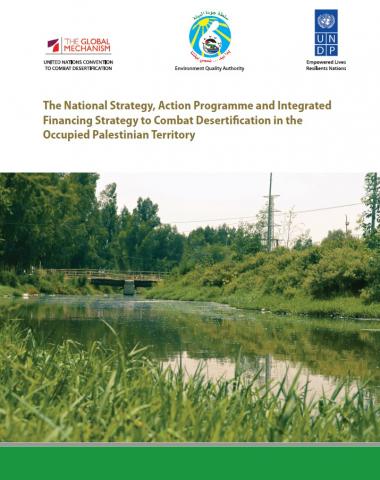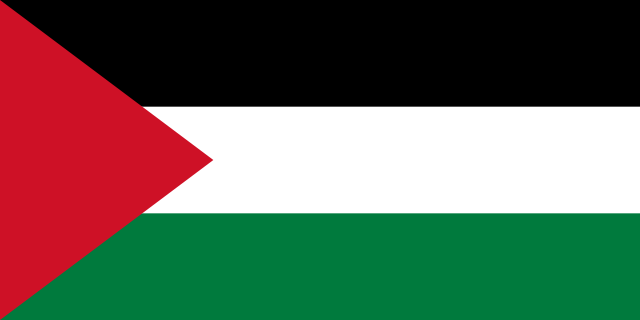
The Occupied Palestinian Territory (oPt) consists of two geographically separated land masses, the West Bank and Gaza Strip, with a land area of around 6257 km2 and a population of was 4.17 million inhabitants in mid 2011 ; lies in a strategic, geo-political and geo-economic region in the Middle East.
The oPt has a variety of geographic and climatic conditions that contribute to its biological diversity (flora and fauna). Due to its geographical location, oPt is exposed to frequent drought waves, land degradation and to desertification al most in all areas and in particular in the eastern slopes of the West Bank.
The absence of the political control over the land by the Palestinians due to the severe measures of the Israeli occupation confiscation of land and water, rapid growth of the population and the improper distribution of the population in arid, semi arid and desert lands together with the occurrence of drought and lack of funding have exacerbated land degradation and desertification. Therefore, the Environment Quality Authority (EQA), on behalf of the Palestinian National Authority (PNA) has been authorized to formulate a National Strategy to combat Desertification.
The overall objective of the Strategy is to prevent, halt and where possible reverse the effects and impacts of desertification, land degradation and drought, in order to contribute to poverty alleviation, improve livelihoods of people and achieve sustainable development.
The following four strategic objectives have been identified to contribute to achieving the overall objective and other national and sectoral objectives:
-
To upgrade institutional, legal and human capacities and frameworks and to create the enabling policy environment. As desertification is a multi-disciplinary issue, it is also multi-stakeholder where several institutions are directly or indirectly involved in policy and strategy formulation, planning, finance implementation, monitoring and evaluation of the interventions and actions related to mitigation and combating of desertification, land degradation and drought.
-
To improve awareness and attitude of stakeholders and to seek maximum participation and partnership of the affected people and the private sector. The definitions, concepts and approaches related to desertification, land degradation and drought are not known, not clear or confused. The levels of knowledge and awareness differ among different stakeholders. The impacts and consequences in the short, medium and long term at local, national and regional levels are not clearly identified and understood, therefore the efforts and resources needed to deal with them are underestimated. Also, the roles, potentials and responsibilities of different stakeholders and players are not clear, overlapping, contradicting or competing with each other.
-
Due to the alternation of rulers over Palestinian territory during the last century, especially since 1967, Palestinian natural resources conservation and sustainable use have been neglected and they have suffered from being exploited, confiscated, and misused by Israeli occupation authorities. The causes and consequences of desertification in oPt should be dealt with in a holistic and integrated manner. This will include the land, water, vegetative cover and wildlife.
-
To improve mobilization, efficiency and effectiveness of financial and technical resources available to combat desertification, land degradation and drought.
